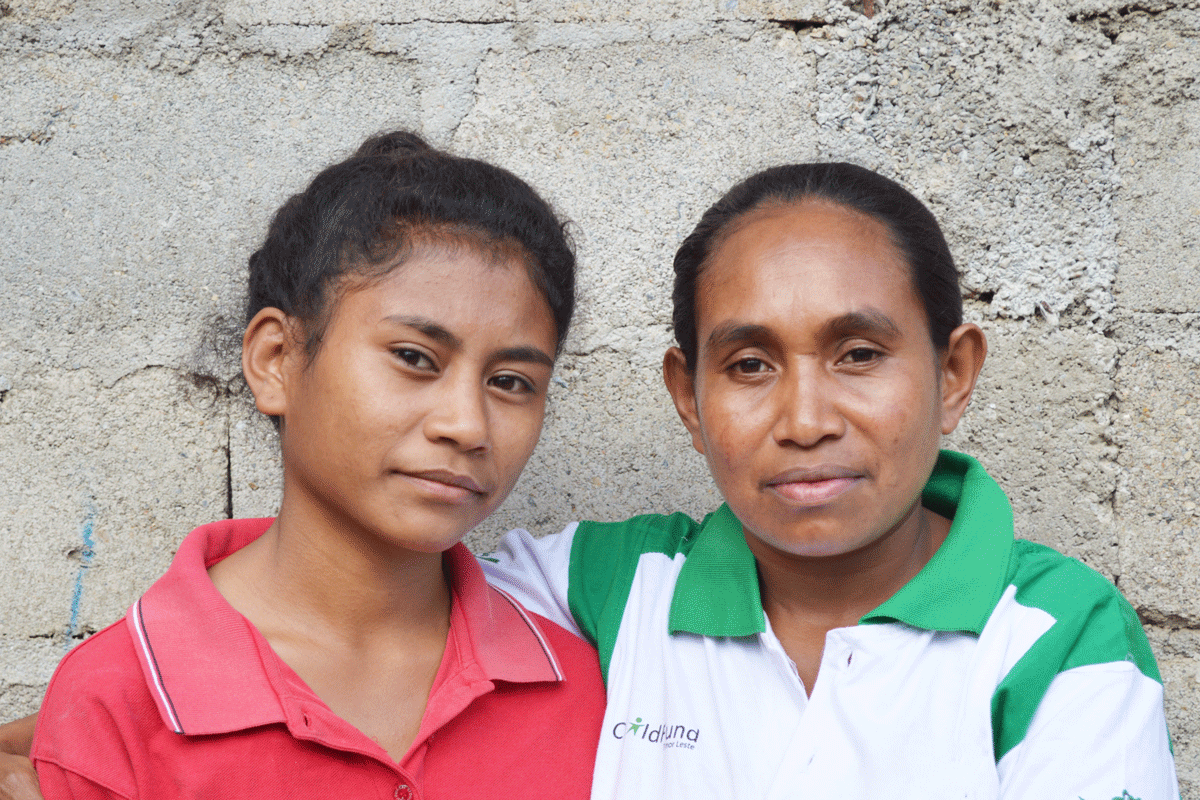The heartbreaking reality of maternal and child health in Timor-Leste
11 September 2019
•By Rita


Anita’s son was just a month-old when she noticed something was wrong. His health deteriorated after she took him to a hospital where, sadly soon after, he died. Anita still does not know the cause. This is the heartbreaking reality of maternal and child health in Timor-Leste.
A lack of health information leaves parents unprepared for danger signs
A lack of health information in remote and rural communities in Timor-Leste means many parents like Anita are unable to recognise the danger signs of what might be common, and curable, childhood illnesses. In addition to complications at birth, malnutrition, diarrhoea and malaria are common causes of neonatal deaths in the country.
Many mothers also give birth at home without a doctor or a midwife, and in unsafe conditions.
“I know two friends who have passed away giving birth,” Anita says. “It makes me feel afraid and worried.”
Losing a child or parent is devastating for those left behind. But in developing countries, mothers too often lose their babies, and children too often lose their mothers.
What is maternal and child health like in Anita’s community?
Anita lives in a remote community, high up in the mountains. She is only 21 years old, but has already experienced the heart-wrenching loss of a child, as well as two friends.
A lack of health infrastructure, resources and information in her community contributes to high maternal and infant mortality rates . Mothers are dying from complications during pregnancy, at childbirth, or soon after childbirth, and so are their newborns.
Our maternal health program is saving mothers and their children
ChildFund Timor-Leste is helping to prevent these deaths by upskilling and training doctors, nurses and midwives on maternal and child health, and encouraging mothers to deliver their babies in health clinics or hospitals rather than at home. Community health volunteers are also being trained to advise, support, and care for pregnant women and their babies before and after childbirth.
Anita has been part of ChildFund’s maternal and child health program for the past two years. During this time she has given birth to twin girls. Community health volunteer Julia has been by her side since Anita became pregnant, encouraging Anita to have regular prenatal and postnatal check-ups, and providing advice on breastfeeding and the types of foods to eat and feed her children.
It was also Julia who called the doctor when Anita went into labour so she could deliver safely at home.
Developing safe healthcare options for mothers and newborns?
Julia says before ChildFund’s maternal and child health project , many mothers and babies died at childbirth because they delivered at home without the support of a trained health professional.
“The traditional way for mothers to give birth is at home, but families do not know when she is ready to give birth, or whether the head or the feet of the baby will come first,” Julia says. “Mothers would give birth too soon. Families would forcefully push the baby out by laying hands on the mother’s stomach, and the mother would forcefully push even if the baby was not ready to come out.
“Sometimes they would use knives that they used to cut food with to cut the baby’s umbilical cord; the knives were not sterile.”
One of the key changes Julia has seen in her community since ChildFund’s project began is that fewer mothers now deliver at home alone or without a doctor or midwife.
“For those families who do not have access to transport to go to the health centre or hospital, they know they should contact a community health volunteer so a doctor can be called and go to their home to support the birth,” she says.
“Since the project, I do not know of any mothers or babies who have died, and mothers are now attending regular health check-ups.”
Anita is hopeful about the future of mothers and their babies in her community
Today, Anita’s twins are 20 months old, and happy and healthy. Anita relies less on Julia for advice and support, but the pair continue to share a close friendship.
Anita is hopeful about the future of mothers and their babies in her community.
“I believe the presence of the project can help mothers deliver safely,” Anita says.
Together we can ensure safer births and save lives
We’ve made a real difference in Timor-Leste, but we need to expand our reach to help more women give birth safely. You can help.
Donate to our maternal and child health appeal today, and together we’ll save lives.
